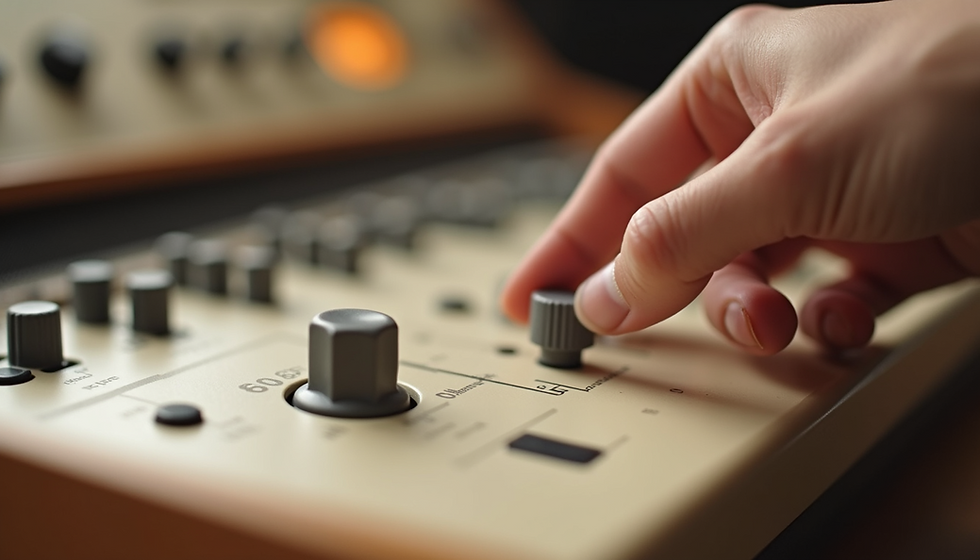Mastering Music Production: Top Tips and Tricks
- Kevin Luu
- Jun 20
- 2 min read
Welcome to the exciting world of music production! Whether you are a seasoned producer looking to enhance your skills or a beginner eager to dive into the realm of audio creativity, mastering the art of music production is a rewarding journey that requires patience, dedication, and a good set of tips and tricks up your sleeve.

To help you navigate through the intricacies of music production, we have compiled a list of top tips and tricks that will undoubtedly elevate your production game to the next level.
Invest in Quality Gear: While having the latest and greatest equipment is not a prerequisite for producing great music, investing in quality gear can significantly impact the overall sound of your productions. Start with a good pair of studio headphones, a reliable audio interface, and a decent microphone.
Learn your Tools: Whether you are using a digital audio workstation (DAW) or hardware-based system, take the time to familiarize yourself with the tools at your disposal. Understanding the ins and outs of your equipment and software will streamline your workflow and unleash your creativity.
Experiment with Sound Design: Don't be afraid to venture into the world of sound design. Experiment with synthesizers, samplers, and audio effects to create unique sounds that will set your productions apart from the rest.
Mixing and Mastering: Mixing and mastering are essential components of the music production process. Learn how to balance your tracks, apply effects, and master your final mix to achieve that professional sound.
Stay Creative: The key to producing great music is to stay inspired and creative. Don't be afraid to think outside the box, try new techniques, and collaborate with other artists to keep the creative juices flowing.
Take Breaks: It's easy to get lost in the production process for hours on end, but remember to take breaks to rest your ears and prevent fatigue. A fresh perspective can do wonders for your productions.
Seek Feedback: Don't hesitate to seek feedback from fellow producers, musicians, and even listeners. Constructive criticism can help you identify areas for improvement and grow as a producer.
Study Music Theory: While not mandatory, having a basic understanding of music theory can be incredibly beneficial for music producers. Knowing key signatures, chord progressions, and scales can enhance your compositions and arrangements. In conclusion, mastering music production is a continuous learning process that requires dedication, practice, and a willingness to step out of your comfort zone. By implementing these tips and tricks into your workflow, you will be well on your way to creating music that resonates with listeners and showcases your unique artistic vision. So, what are you waiting for? Fire up your DAW, grab your headphones, and let the music production magic begin!



Comments